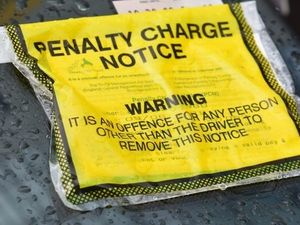Cost-of-living crisis likely 'to get worse' as struggle pushes people to the edge
The cost-of-living crisis is pushing many people over the edge and the struggle many families are experiencing is likely to get worse.

That is the bleak forecast from Citizens Advice in the Black Country as new figures show the number of personal insolvencies has gone up across the region.
A person becomes insolvent when they are unable to pay their debts and are left with a choice of declaring bankruptcy or taking on measures to pay them back.
Citizens Advice for Dudley and Wolverhampton said the conversations that advisors had been having with clients had primarily been about cost of living and debts.
She said staff who would previously associate severe financial problems with failed business ventures or large debt accumulated over time, are now increasingly finding that callers simply cannot cope with the rising price of food, energy and mortgages.
Many more people are also struggling with priority debts, which means they could lose their home, have their energy supply cut off, lose essential goods or go to prison if they don’t pay, rather than just non-priority debts such as credit cards and overdrafts.
She said: “It is due to cost of living and with the rise of bills and cost of food. We are finding it is more and more people who are employed, as well as people in receipt of benefits, who are struggling.”
Across the Black Country and Staffordshire, the number of personal insolvencies has risen from 2021 to 2022, according to the Insolvency Service, and, in some cases, were higher than before the Covid-19 pandemic.
In Wolverhampton, the figure rose by 67 from 560 in 2021, to 627 in 2022 In Dudley it jumped from 596 in 2021 to 737 in 2022.
Walsall saw a rise of 102 personal insolvencies from 558 in 2021 to 660 in 2022, while in Sandwell there was a rise of 69 from 663 in 2021 to 732 in 2022.
Stafford, Cannock Chase and South Staffordshire have also experienced an increase in those going insolvent.
Across England and Wales there were 119,000 insolvencies in 2022, up from 110,000 the year before.
In May 2021, the Government launched its Debt Respite Scheme, which saw people unable to pay debts become eligible for a “breathing space” and meaning creditors cannot pursue legal action against them for a set period while they sort their finances out.
Across England and Wales nearly 112,000 registrations have been made for a breathing space since the scheme launched, including 681 in Wolverhampton, 661 in Dudley, 691 in Walsall and 789 in Sandwell.
There were also 1,680 in Staffordshire, including 243 in Stafford, 227 in Cannock Chase and 172 in South Staffordshire.
The spokeswoman for Citizens Advice said the service had also worked to help people to manage their debts through the application of Debt Relief Orders, a way to deal with debts for people who owe £30,000 or less, don’t own their own home and don’t have assets or much spare income.
She said: “We are helping more and more people, especially with Debt Relief Orders as they increased the threshold last year and more people are able to fall into an order instead of bankruptcy, because it’s a relief order and it’s cheaper as the fees are cheaper.”
While bankruptcies have declined nationally in recent years, from nearly 17,000 in 2019 to under 7,000 in 2022, there have been an increasing number of Individual Voluntary Arrangements (IVA), which can involve high fees from private providers.
IVAs involve a person in debt agreeing to a repayment plan with their creditor, who may agree to reduce or stop interest payments over the same period. In Wolverhampton alone, 507 IVAs were granted in 2022, along with 30 declarations of bankruptcy.
The spokeswoman said that Citizens Advice would do what it could to help people.
But it warned the situation was going to get worse before it got better, saying that with the cost of living crisis continuing, more households were expected to fall into the problem of financial outgoings far exceeding income.





